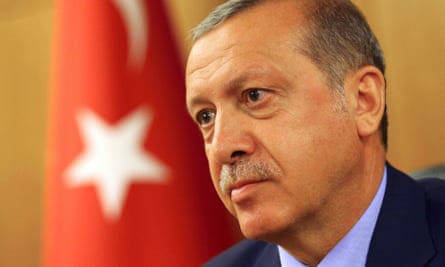When tanks rolled across Istanbul and Ankara on Friday night, at the start of Turkey’s botched coup, many in the country were frightened. But few in Turkey had more reason to be afraid than its 2.7 million Syrians, the largest Syrian diaspora community in the world.
“When we first heard about the coup attempt, we felt an unprecedented fear,” remembers Hussein Qassoum, a 30-year-old logistics manager living in Istanbul. “Most of my friends started asking: ‘Which other country should we go to now?’”
Like many Turks, Syrians feared the violence that broke out in the early hours of Saturday might spiral into something more sustained. But Syrians also had more specific concerns about what might happen to them if the president, Recep Tayyip Erdoğan, was toppled.
Life is hard for Syrians in Erdoğan’s Turkey, where they do not have full rights. Despite recent legislative changes, the vast majority are not allowed to work. Hundreds of thousands of Syrian children are not in school, with many working in sweatshops instead. Syrians are denied official refugee status, since Turkey does not recognise key parts of the UN refugee convention.

But Erdoğan’s government has at least given about 2.7 million Syrians a basic level of sanctuary. None of his political opponents has promised to be as accommodating and there is a fear that without Erdoğan, life could get even tougher for Syrians in Turkey.
After the president recently hinted that some wealthy Syrians might be given Turkish citizenship, the slogan “I don’t want Syrians in my country” trended on Twitter. One newspaper responded by describing Syrians as “vermin”, and there are even theories that the citizenship proposal was the final straw that pushed the putschists into action.
“No other party apart from Erdoğan’s declared anything about being sympathetic to Syrians,” says Qassoum. “So that made me fear the worst.”
Another Syrian in Istanbul argued that if the coup had succeeded, Syrians would have been kicked out of Turkey. Ahmed, a Syrian who runs a small workshop in Istanbul, envisaged a scenario where a new government would “rebuild Turkey’s relationship with the Syrian regime, and systematically deport Syrians to Syria within two or three years”.
Syrian refugees experienced a comparable backlash in Egypt in 2013, following the coup that ousted the Muslim Brotherhood, a loose Erdoğan ally. Under the Brotherhood’s rule, Syrians had been given preferential treatment, and were therefore perceived to support the group. So after the Brotherhood’s removal, Syrians were among the victims of the new regime’s crackdown – and on Friday, Syrians feared a similar situation in Turkey.
Others feared what would happen to rebel-held northern Syria. Turkey has all but stopped letting Syrians cross into Turkey itself, but it has long provided support to the communities and rebels suffering on the other side of its southern border.
So when the sun rose on Saturday to reveal that Erdoğan remained in charge of the country, many Syrians would have been hugely reassured. Some even joined pro-Erdoğan protests, while a group still stuck inside Syria reportedly gathered at a Turkish border crossing to express their satisfaction.
Up in Istanbul, Qassoum “felt relieved. All the tension was gone”.

But for some, the anxiety continues. While some want to actively show their support for Erdoğan, others see danger in being associated with any particular political faction. After the Syrian charity Dubarah posted a Facebook message that advised Syrians to stay out of Turkish politics, it sparked a wide range of responses.
“If Erdoğan leaves, we are screwed,” wrote one Syrian. “Let them get to the squares and support [Erdoğan’s supporters] in maintaining democracy.”
But another responded: “Stay at home. Whatever happens, happens. It’s none of your business. Or else what happened in Egypt will happen again.”

In Istanbul, one Syrian interviewee said he felt under threat not just from Erdoğan’s opponents, but the government, amid a wider crackdown on people perceived to oppose the president.
Ahmed, the workshop manager, reported being summoned to his local police station a few hours after the coup failed on Saturday. Once there, intelligence officers seemed to be trying to decipher whether he was a threat to the government. They asked about his connections to the Syrian regime and whether he supported the Muslim Brotherhood.
“It reminds me of 2011 in Syria,” said Ahmed, referring to the crackdown that followed the start of the Syrian revolution. “They asked me: ‘Why didn’t you change your cover on Facebook, why don’t you have a Turkish flag?’ It makes me feel like we’re heading towards a one-party state.”
More generally, Ahmed wondered whether more Syrians would make for Europe again, after a recent drop in numbers caused by the EU-Turkey migration deal.
European leaders this week cautioned Erdoğan against reintroducing the death penalty, warning that it will result in Turkey being barred from joining the EU.
Such a move could cause a fallout between Europe and Turkey, said Ahmed. “So Erdoğan will not try to keep Syrians any more and will encourage them to go to Europe.”
